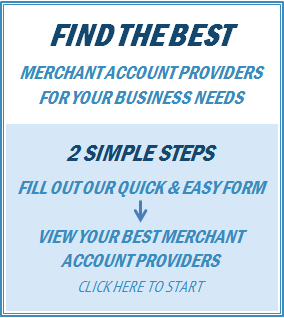Accepting Credit Card Payments
One of the great things about the internet is the ability to connect with other small business owners and share information. OK, sometimes it’s just gossip and gripes, but there’s value in talking things out with others in your situation. One of the frequent topics is how much we pay for our merchant accounts and which payment gateways have the best deals.
Should I Switch?
If you take credit card payments now, you are in the group with online merchant accounts or using the services of a reseller. In either case, accepting credit card payments online is a part of your business model, and like all other aspects of a business, we try to periodically review it. For online processing, the question usually comes down to, “Am I getting the best merchant rates and the best service possible?”
Since accepting credit cards is the norm online, there are thousands of entrepreneurs asking the same question.
Whether or not you switch merchant account providers depends on your anticipated savings and if you have a contract in place. Contracts can be:
- Length specified – a dated term with an associated penalty if you cancel early.
- Auto-renewal term – this runs along with contracts with any term. The essential ingredient is that if you do not take action, the contract automatically renews.
- No-term – These run in short cycles (usually month to month). They are often paired with auto-renewal.
- No restrictions – these are for resellers like Paypal where there is no set minimum and fees are tacked onto each transaction. These accounts may have a maximum though.
Because you are giving up some freedom when you enter into a contract, you should get a lower rate on either a per-transaction basis or reduced fees elsewhere. The worst rates come with the most freedom. So those using a reseller may need merchant account holdings under their own business name to get the best deals.
Changing between merchant account processing services isn’t difficult, as long as you understand any penalties that come from cancelling a contract and know that you will have to resolve all pending matters with your old merchant credit card processing service. Some make it more difficult than others. Generally, merchants will start a new account to use while everything is finalized on their old account. Banks may require some delay before they send a final check on the old account so that all pending transactions have a chance to clear completely – this can be a month or more. This is also helpful because you get a chance to familiarize yourself with the new account, credit card machine, software and everything else before you soon to be old account is gone for good.
Evaluating Options
Anyone who remembers the phone wars knows how competitive processing credit cards can be. Phone companies were at each other’s throats trying to get customers to switch from one provider to another. It’s not quite that bad, but with credit card processing, you will have several companies to shop and they will offer a variety of packages to get your business.
Here’s one mistake to avoid: Focusing on something you dislike now without examining what’s replacing it. An example would be only looking at the discount rate you are paying and not thinking about the transaction fee. The discount rate is the percentage of a sale you pay when you process credit cards for you customers. Some entrepreneurs may switch based on a lower discount rate, without looking at how a slightly higher transaction fee could add up. The general rule is if you do a lot of smaller sales, get a lower transaction fee. If you do a low number of larger sales, go for a lower discount rate instead.
Along with these base rates, you’ll have to look for additional fees your previous merchant account service provider may not have charged. Some of the harshest criticisms from those who accept payment online have to do with “hidden” fees. The old advice about read before you sign applies here.
Other Considerations
Before you switch, it’s important to remember the answer to this question – “Why accept credit cards in the first place?” Hopefully, you’ve found additional sales, better cash flow, and customer convenience at the top of the list. If you didn’t, or your volume wasn’t what you expected, it’s time to reevaluate how you approach internet processing, especially when it comes to accepting credit card payments on a website.
The switch can go a few different ways – not everyone needs to go from a reseller to a full merchant account. Some go the other way, dropping their merchant account and hooking up with a reseller instead. The critical thing is not to let the process drive what you end up with. Accepting credit card payments for small business has to be customized to each business. Do you need a fully integrated shopping cart with credit card functionality or can you get away with a button that links to Paypal or Moneybookers? What are the differences in costs with each method?
Watch out for auto-payments and subscriptions – you will have to make sure your new merchant account is getting these instead of the old. You will have to give your gateway provider all the new information as well. It’s advisable to run several test transactions before you “go live” on a website as well.
The mechanism of switching isn’t that hard. However, the decision to do so does take some analysis.


